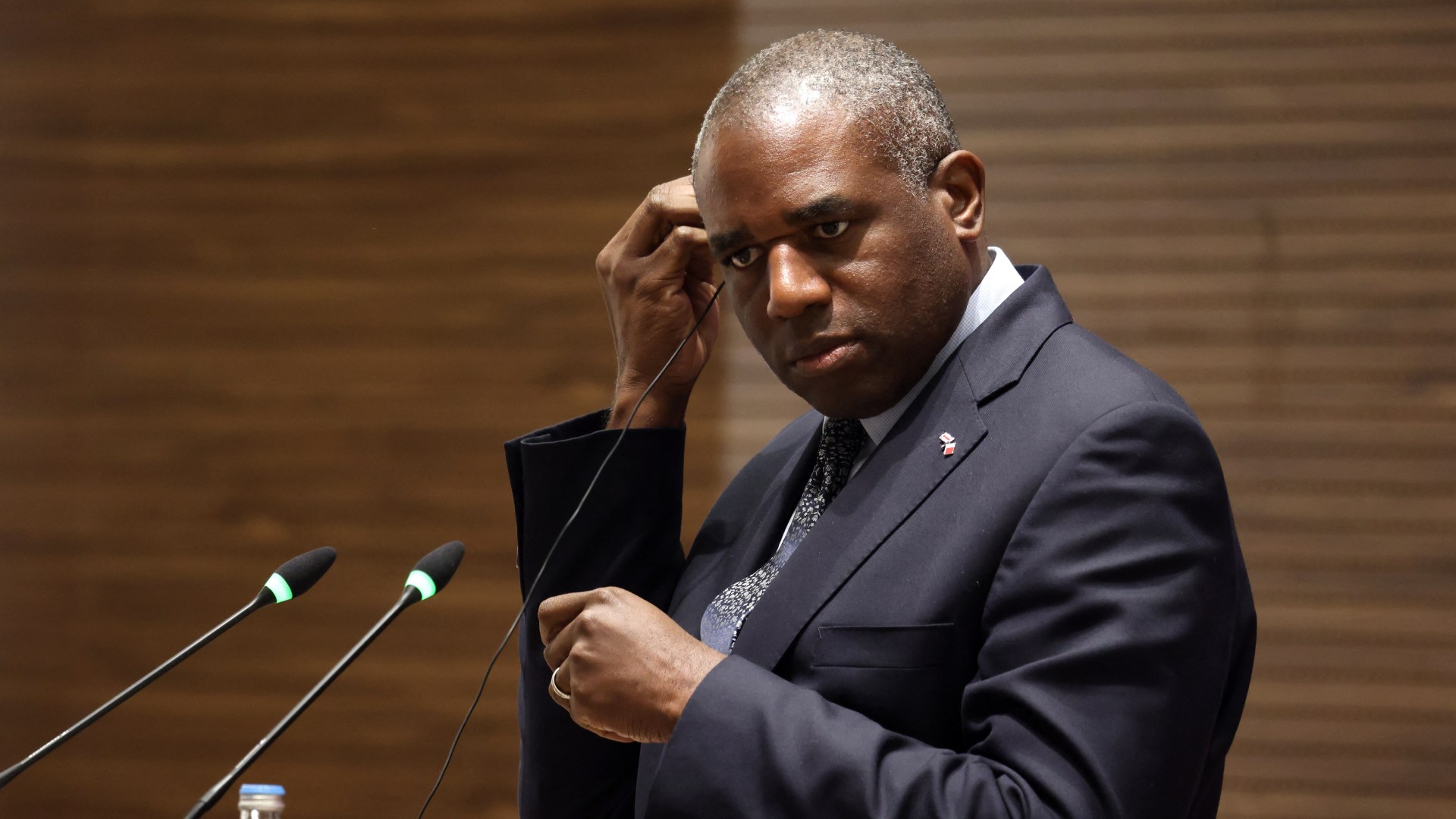UK in discussion with France and Saudi Arabia over Palestinian statehood

British Foreign Secretary David Lammy has said the UK government is involved in discussions with France and Saudi Arabia about recognising a Palestinian state ahead of a key United Nations conference on the issue in June.
Speaking to the House of Lords’ international relations and defence committee on Wednesday, Lammy said it was “unacceptable” that the Palestinian people remained stateless, and said a two-state solution remained the only option.
He acknowledged for the first time that the UK was working with France and Saudi Arabia in the run-up to the UN conference in New York to “to ensure we keep two states alive”.
French President Emmanuel Macron recently said that France, a permanent member of the UN Security Council, could recognise Palestine at the conference.
Asked when the UK government was likely to follow the 148 UN member states who have already recognised Palestine, Lammy said no one had a veto over when that happened.
New MEE newsletter: Jerusalem Dispatch
Sign up to get the latest insights and analysis on Israel-Palestine, alongside Turkey Unpacked and other MEE newsletters
“We have always said recognition is not the end in itself, two-states is the end in itself. We would prefer recognition as part of that process towards two states so we will continue to talk to partners about that,” he said.
“President Macron has had a lot to say about that recently, alongside the Saudis, and of course we are in discussion with them at this time.”
Lammy said the UK, which is also a permanent member of the UN Security Council, wanted its recognition of Palestine to “contribute to progress on the ground” rather than being a symbolic act.
Lammy’s comments came after Hamish Falconer, the Middle East minister, on Tuesday maintained that the UK’s position on recognising Palestinian statehood had not changed.
Asked by Emily Thornberry, the chair of the foreign affairs select committee, whether he agreed that an appropriate time to recognise Palestine might be alongside France at the conference in June, Falconer said that “practical measures” were still needed before such a state would be possible.
“We do wish to recognise a Palestinian state, and we wish to do so as a contribution to a two-state solution,” said Falconer.
“We will make the judgment about when the best moment is to try to make the fullest possible contribution.”
He suggested until questions about security and governance, which he described as “final-status determinations”, were agreed, two states could not live side by side.
“While we are committed to the inalienable right of the Palestinians to a state as part of a two-state solution, let us not pretend that there are not vexed issues at the centre of what a Palestinian state would look like,” he said.
A number of European nations including Ireland, Spain and Norway recognise Palestine, but other countries, including the UK, Germany and France, are yet to do so.
The UN General Assembly in December passed a resolution reiterating support for a two-state solution and establishing the framework for the conference on Palestine set to take place in New York from 2 to 4 June.
Earlier this week, UN Secretary-General Antonio Guterres warned that the prospect of a two-state solution was almost beyond the point of no return, as Israel continues to increase settlement expansion in the West Bank, and wage war and impose a humanitarian blockade on Gaza where more than 52,000 Palestinians have already been killed.
“I urge member states to go beyond declarations and consider concrete steps to save the two-state solution – before it disappears altogether,” Guterres said.
“At this hinge point in history, leaders must show courage, act with resolve, and deliver peace for Palestinians, Israelis, the region, and the world.”
middleeasteye.net